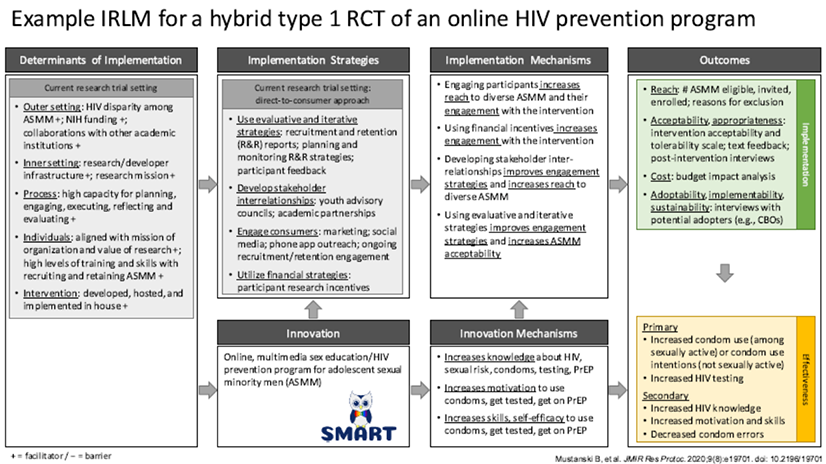Practical Approaches to Implementing EBPs
Whether you are a clinician, or represent a clinic, suicide prevention organization, or large health care system, implementing a new evidence-based practice (EBP) can be tough. Training is a necessary step (see our Exploring EBPs for suicide care page for training options). But training alone is not sufficient. There are many other strategies (more than 70, in fact) to help get an intervention in place, scaled up, and sustained over time. Here are links to four practical and accessible approaches to help you think through the implementation process – they are geared for different learning styles and settings.
Explore each site and pick the approach that is best for your setting:
- Active Implementation Frameworks
- RE-AIM
- Program Implementation Toolkit
- Institute for Healthcare Improvement
Finding Implementation Training and Partnership
Experts to Implement your Interventions
In recognizing how challenging implementation can be, you may want to explore in-depth training or find an expert partner help implement suicide interventions in your setting. These organizations offer training or contract assistance to help you lead this process.
- The Center for Implementation
- Collaboration for Implementation Practice
- Society for Implementation Research Collaboration – Practitioner Network of Expertise
Practical Approaches to Study Implementation
If you are a researcher or program evaluator, these practical approaches will help you think through implementation process evaluation. Some implementation science materials use a lot of unnecessary jargon, so we agree with Geoff Curran that simple non-scientific language is best when possible; his brief paper on this subject is a nice place to start.
When defining implementation science, some very non-scientific language can be helpful:
- the intervention/practice/innovation is THE THING
- effectiveness research looks at whether THE THING works
- implementation research looks at how best to help people/places DO THE THING
- main implementation outcomes are HOW MUCH and HOW WELL they DO THE THING
Curran, G. M. (2020). Implementation science made too simple: A teaching tool. Implementation Science Communications, 1(1), 27. https://doi.org/10.1186/s43058-020-00001-z
Helpful Video Explanations
These videos explain implementation science to suicide and general clinical researchers in a straightforward way:
- Implementation Research for Suicide Researchers, Dr. Sara Landes
- Introduction to Implementation Science: What is it, & why should I care?
Key Concepts
These key concepts in the field of implementation are worth understanding:
- Implementation Outcomes: How Much and How Well are People Doing the Thing?
- How do you Integrate Implementation Outcomes in Clinical Research?
- What stuff can we change to help people and place do the thing? – Consolidated Framework for Implementation Research
- How Cab We Get This Stuff To Change To Help People and Places Do The Thing?
Waltz, T. J., Powell, B. J., Matthieu, M. M., Damschroder, L. J., Chinman, M. J., Smith, J. L., Proctor, E. K., & Kirchner, J. E. (2015). Use of concept mapping to characterize relationships among implemen
Putting it All Together Logically



